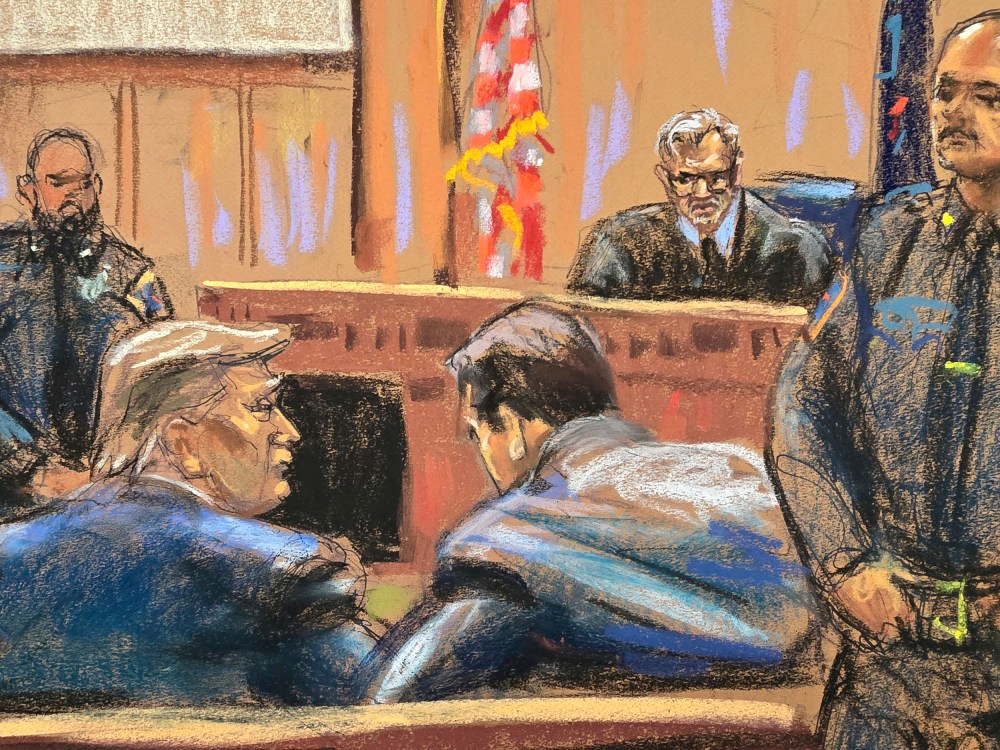Judge Juan Merchan’s decision to set President-elect Donald Trump’s sentencing for Friday, just 10 days before the inauguration, caught a lot of people by surprise. Judge Merchan indicated upfront that he wasn’t inclined to sentence Trump to time in prison and indeed that he was leaning toward an unconditional discharge — meaning Trump wouldn’t have to pay a fine or be supervised by a probation officer. He would walk away a free man, with no further obligations to the court.
Judge Merchan’s critics generally had two questions.
Judge Merchan’s critics had two main questions: Wouldn’t this punishment amount to a slap on the wrist, undermining the rule of law? And why couldn’t the judge wait and leave the sentencing hanging over Trump’s head until after he left office in four years, when his presidential immunity no longer applied?
It’s not the usual situation a judge finds himself in when sentencing a convicted defendant. But the Supreme Court gave Trump immunity no one else possesses: broad immunity from criminal prosecution for a president’s official acts. The criminal conduct in the Manhattan case occurred before Trump became president and was clearly personal, not presidential, conduct. Trump used the Supreme Court’s ruling last year to delay his sentencing date to a point so close to the inauguration that a sentence including incarceration was no longer a realistic possibility.
But something more important than the sentence is at stake here: the conviction. Judge Merchan underlined the importance of the jury’s decision in his order. “The significance of the fact that the verdict was handed down by a unanimous jury of 12 of Defendant’s peers, after trial, cannot possibly be overstated,” he wrote. “Indeed, the sanctity of a jury verdict and the deference that must be accorded to it, is a bedrock principle in our nation’s jurisprudence.”

Those aren’t just empty words. Trump was convicted after a fair and extensive trial. After hearing the evidence and listening to both witnesses and the arguments of the defense team, Trump’s jury concluded that he was guilty beyond a reasonable doubt.
Trump now wants to erase that verdict and escape being forever labeled a “convicted felon.” He has railed repeatedly about how unfair the conviction was, claiming prosecutors are corrupt and Judge Merchan is “conflicted,” whatever that means. Trump wants the jury verdict, an assessment of his guilt made by his peers, to just go away.
And that’s what could have easily happened had Judge Merchan left a custodial sentence on the table or decided to delay sentencing.
The key to making sure Trump can’t wipe out the jury’s verdict is completing the appellate process.
The key to making sure Trump can’t wipe out the jury’s verdict is completing the appellate process. The conviction isn’t final until then. The clock for the appeal starts once sentencing is complete. Once Trump is sentenced, he has 30 days to file. If Judge Merchan had put off sentencing until 2029, Trump’s conviction would not be on the path to becoming final.
Four years is a long time, and anything can happen. There could be new prosecutors or a new trial judge by then, with different ideas about how to proceed. If a defendant passes away before an appeal is over, the conviction is extinguished, sometimes referred to as abatement ab initio. Trump will be 82 when he leaves office. Justice delayed can turn into justice denied. And Trump has already benefited enough from delay.












